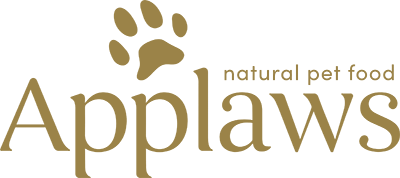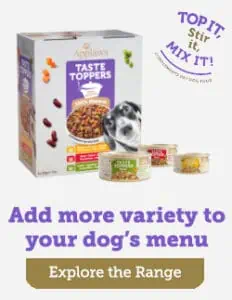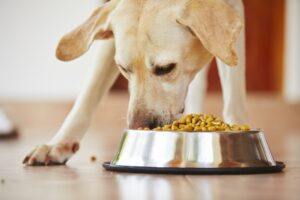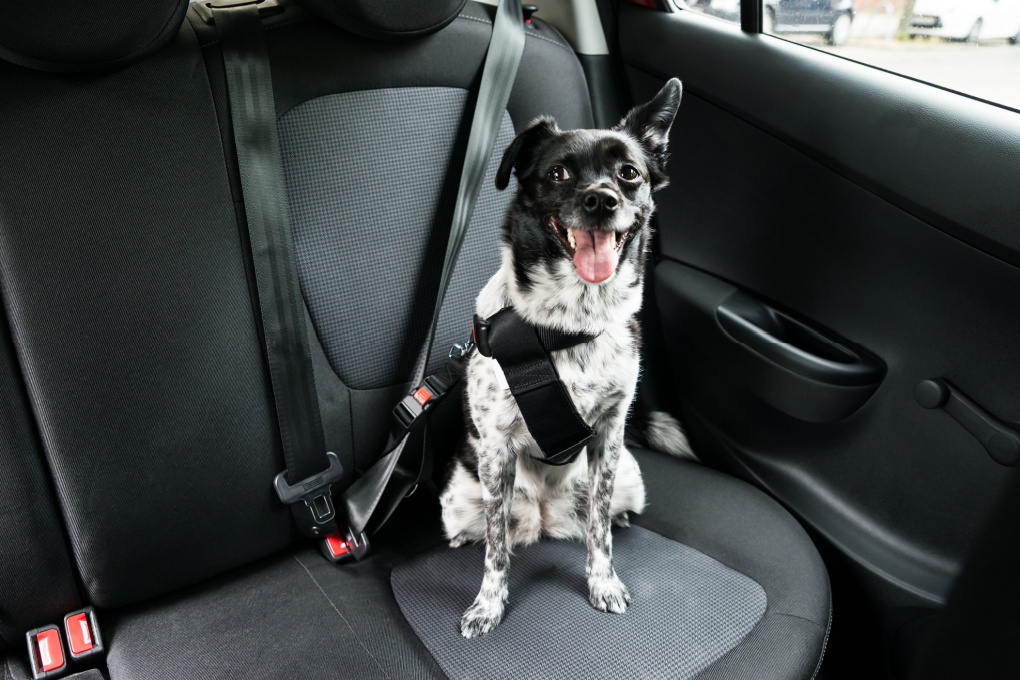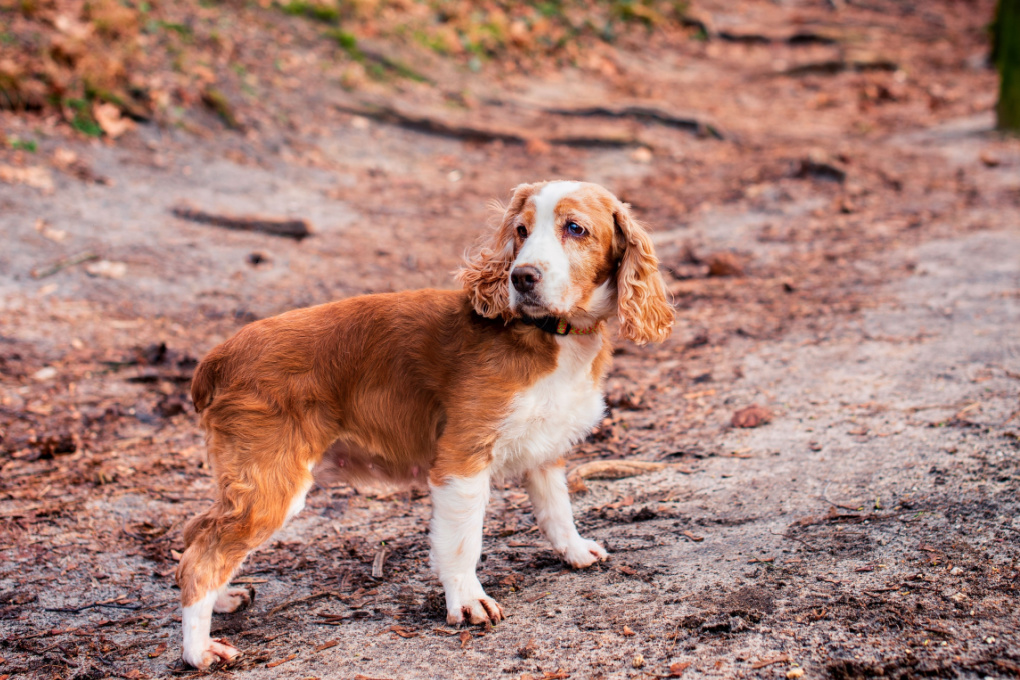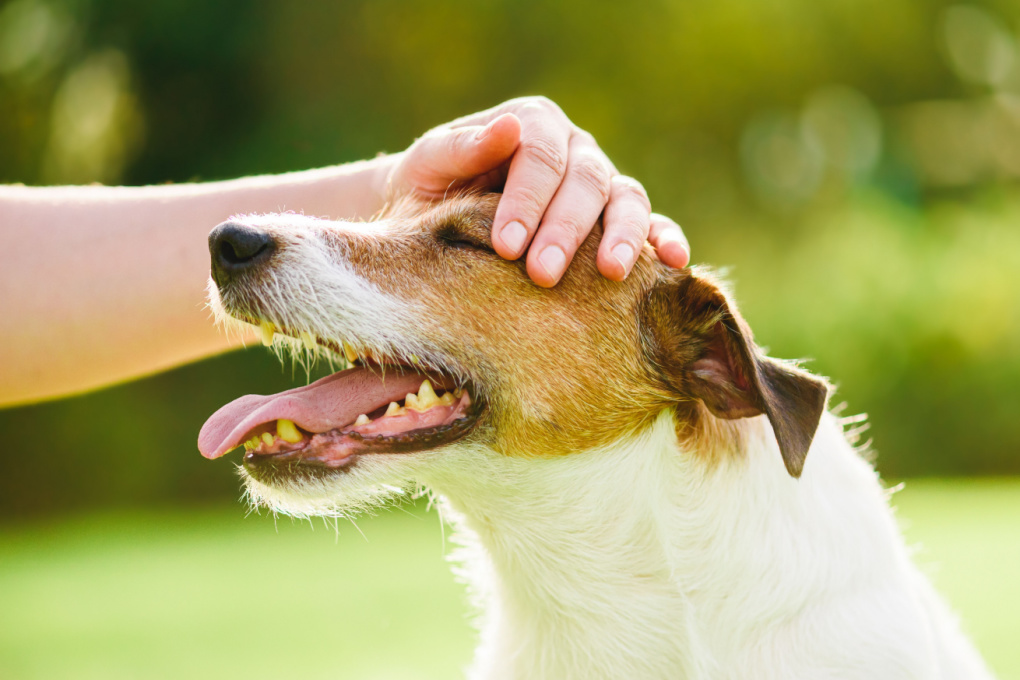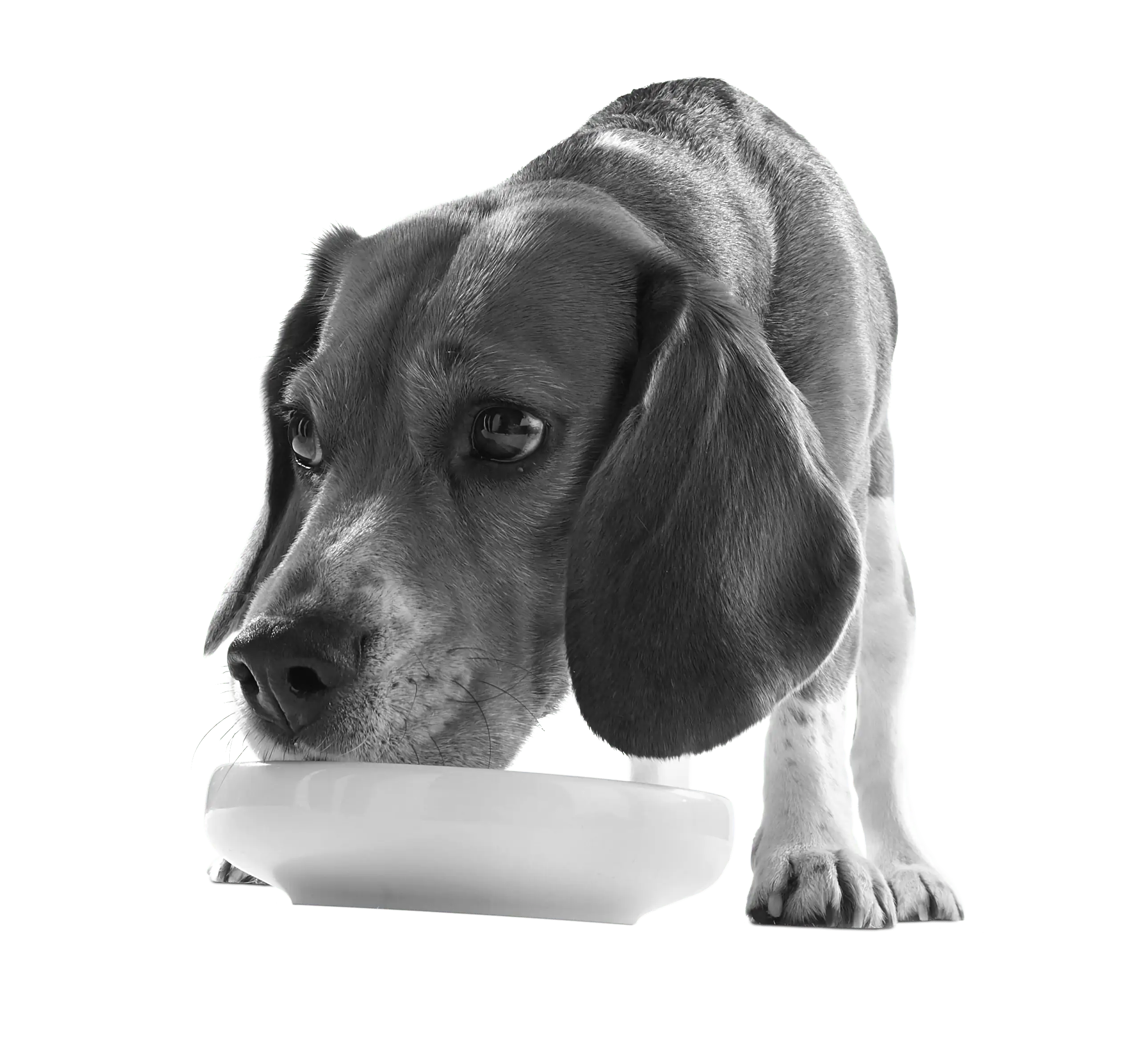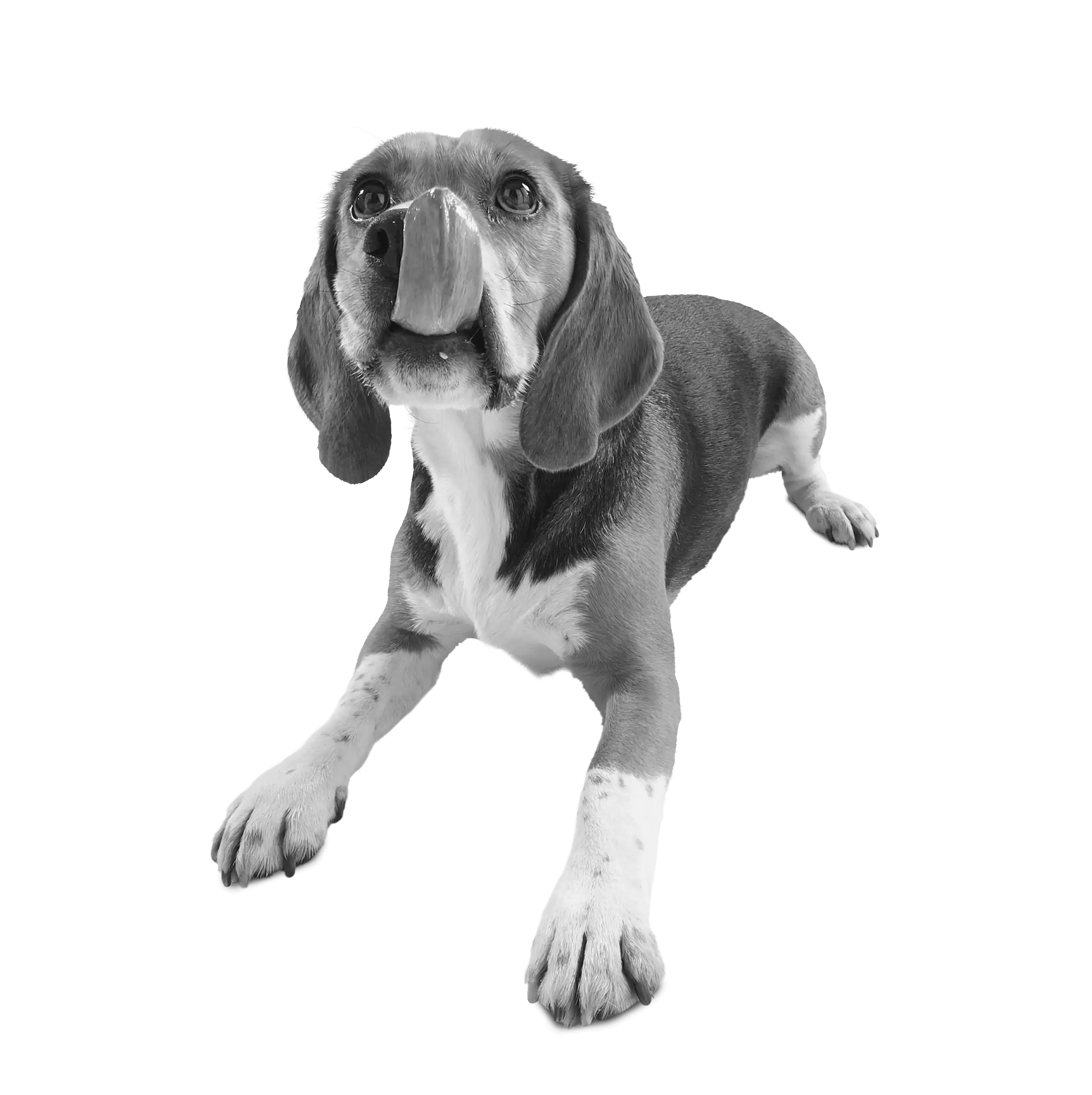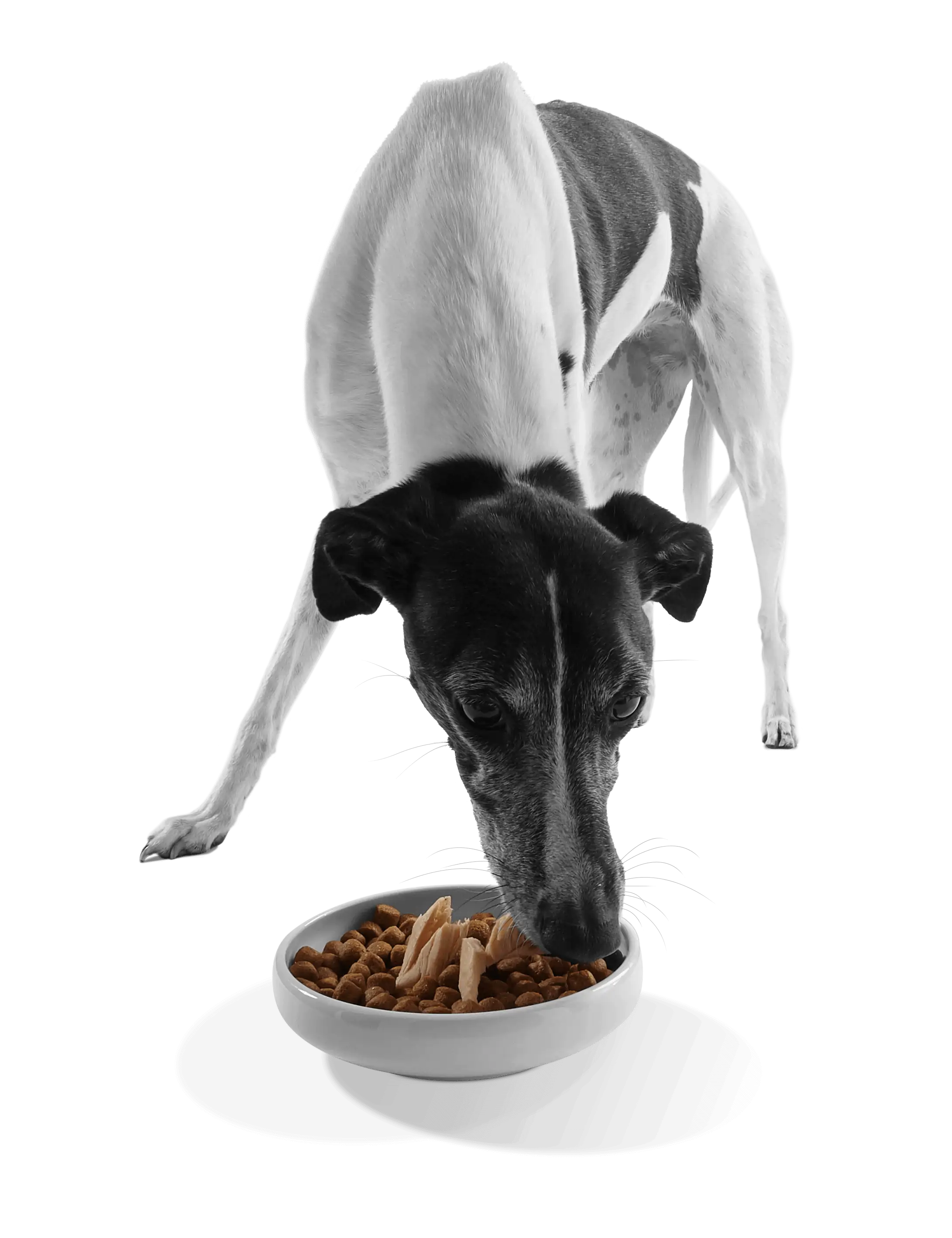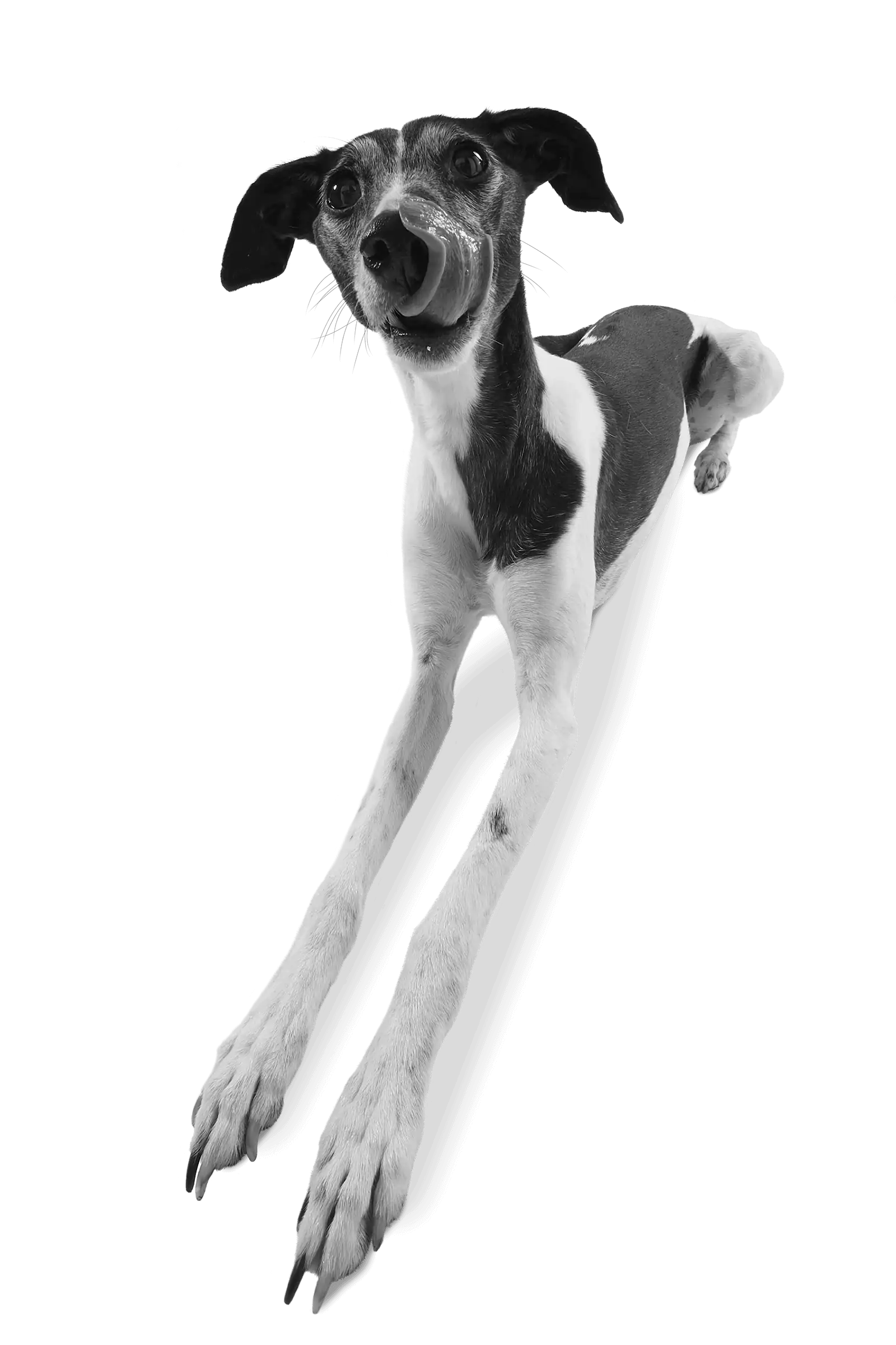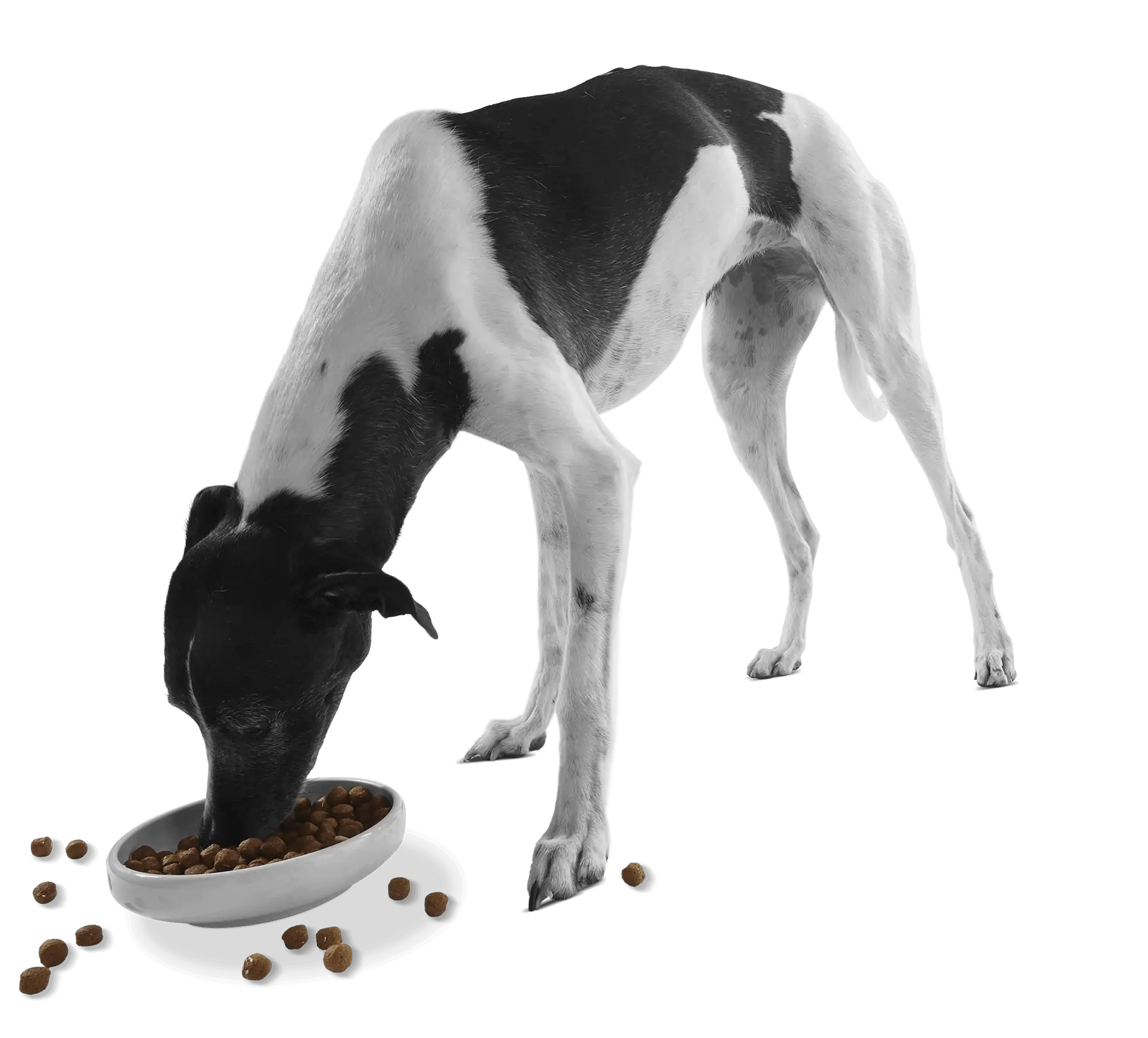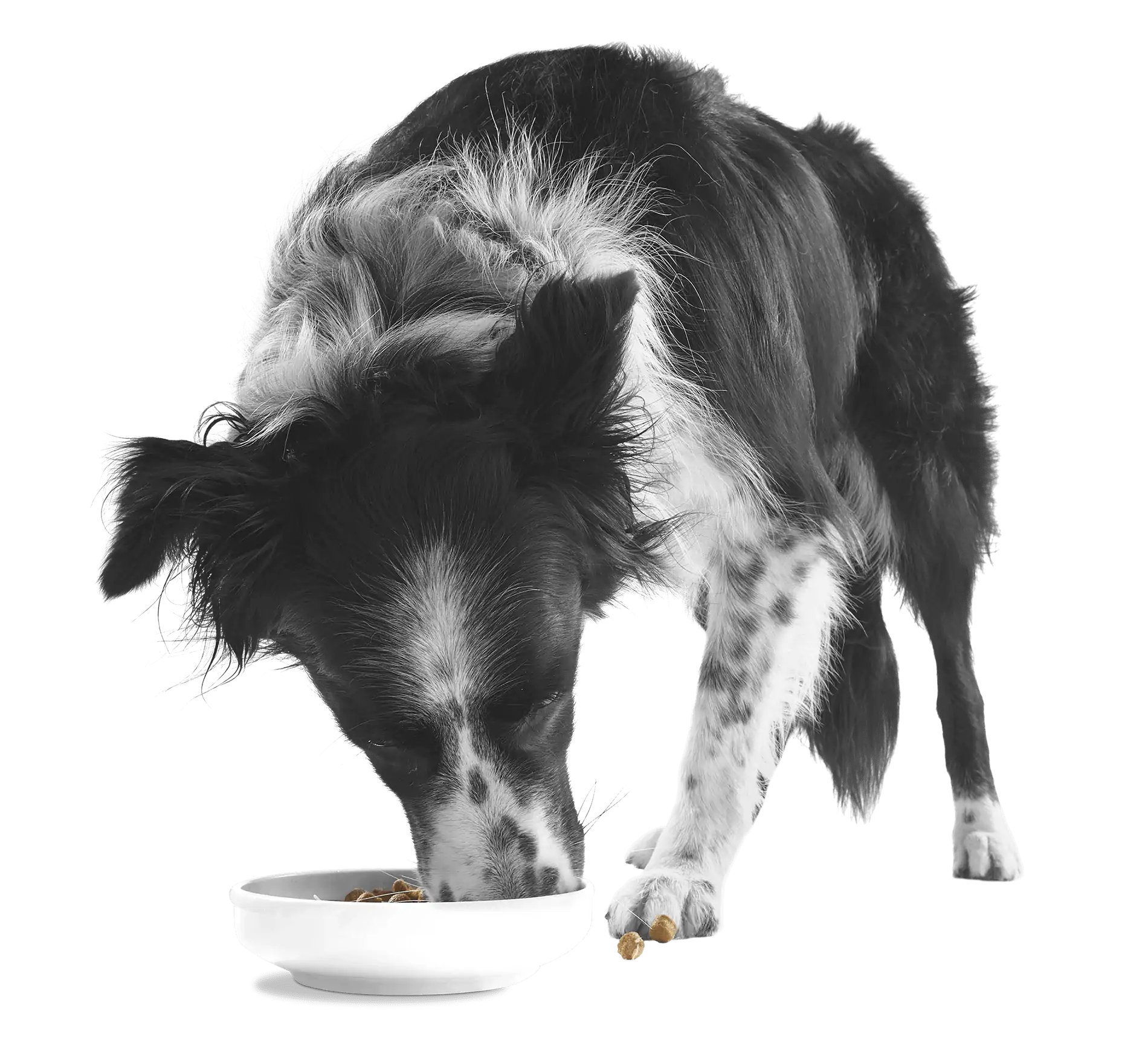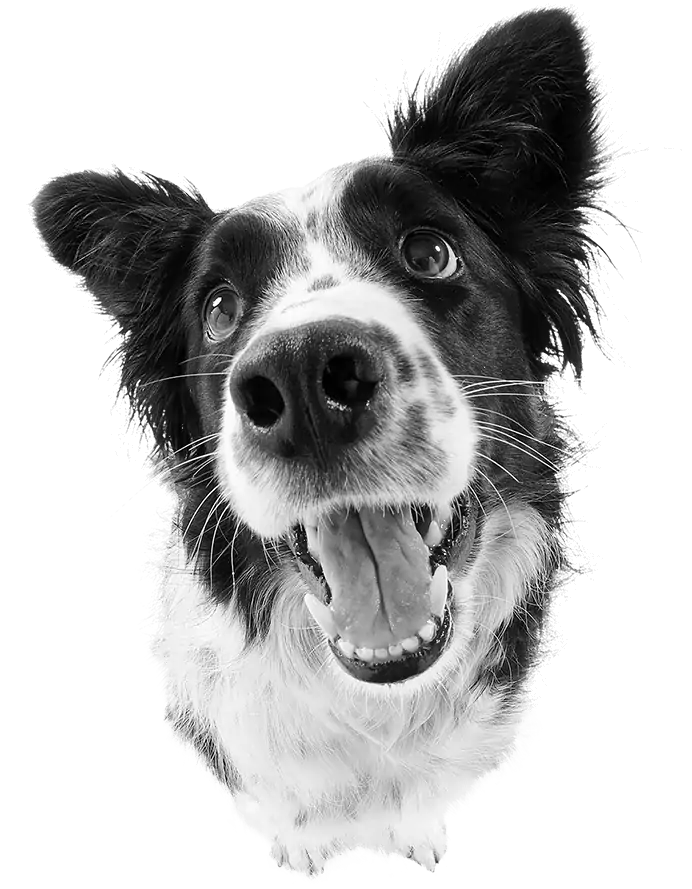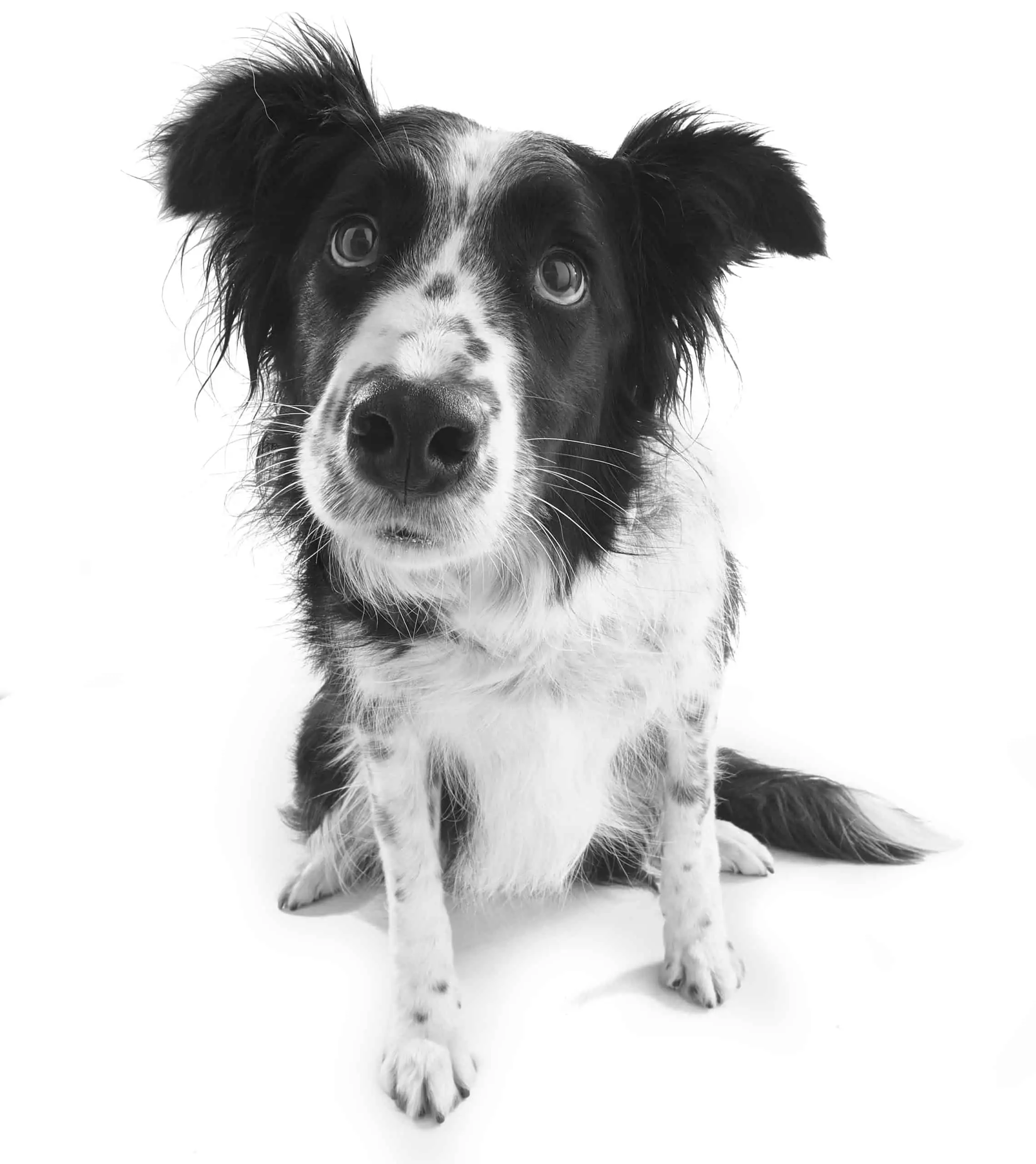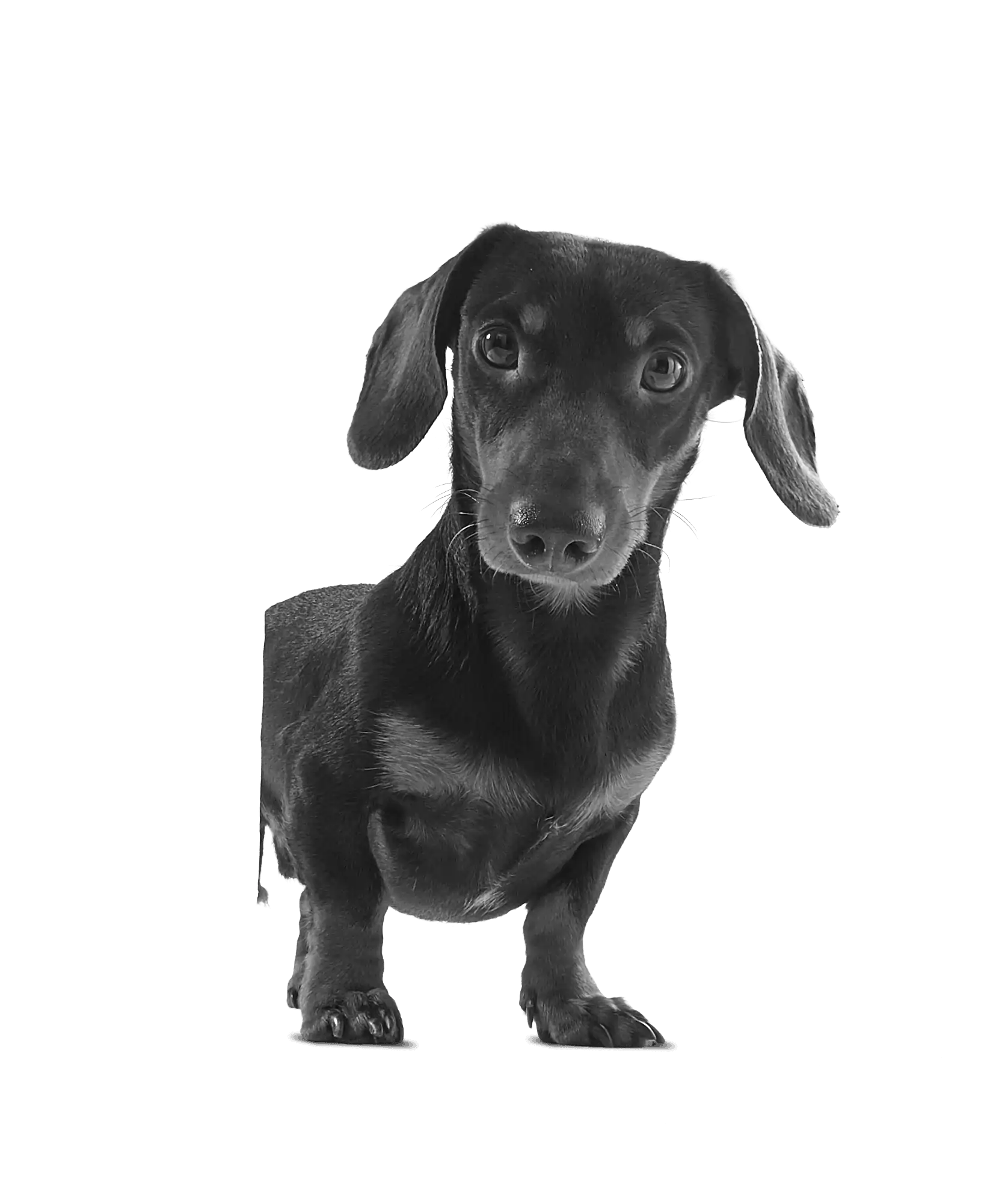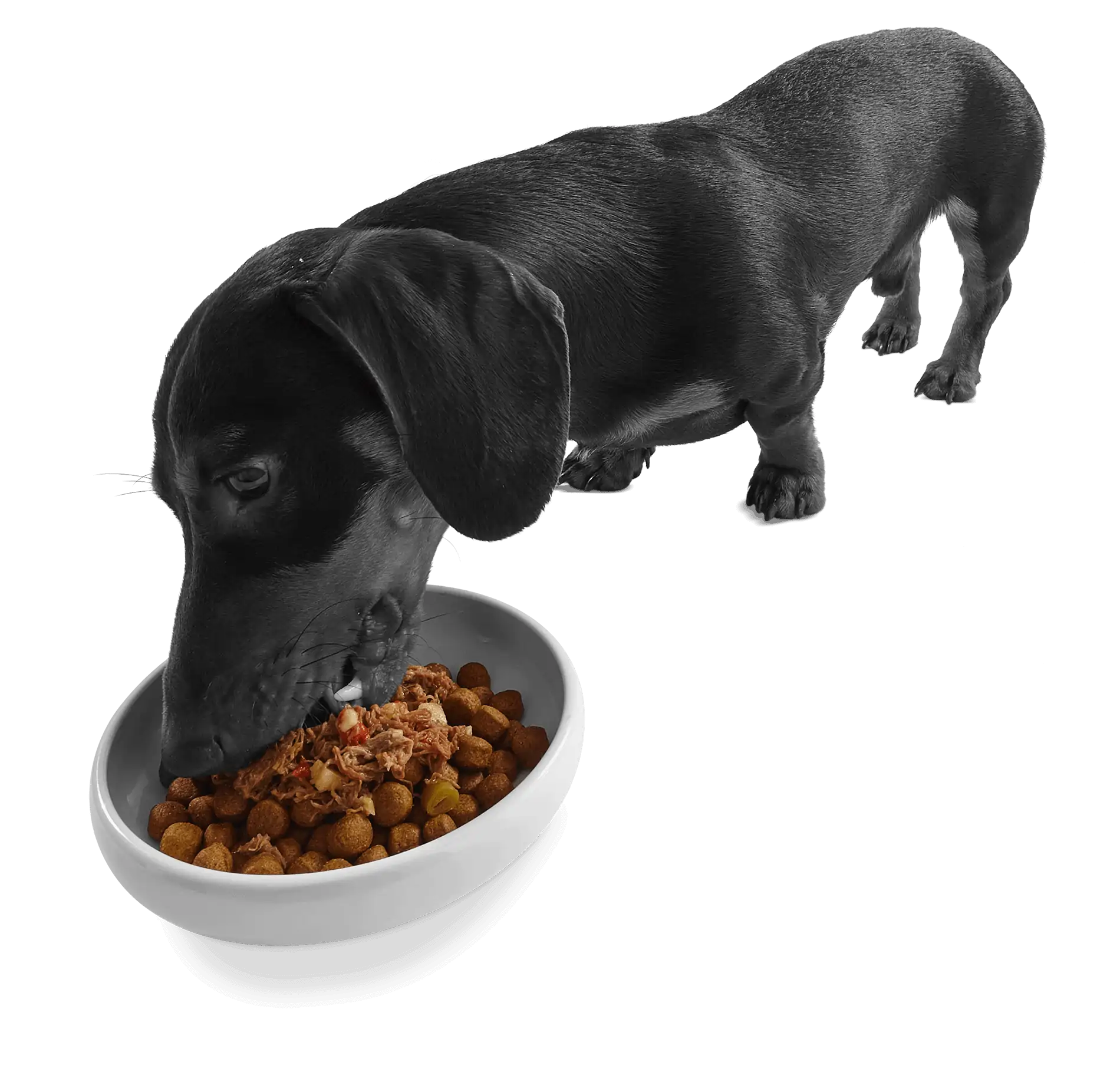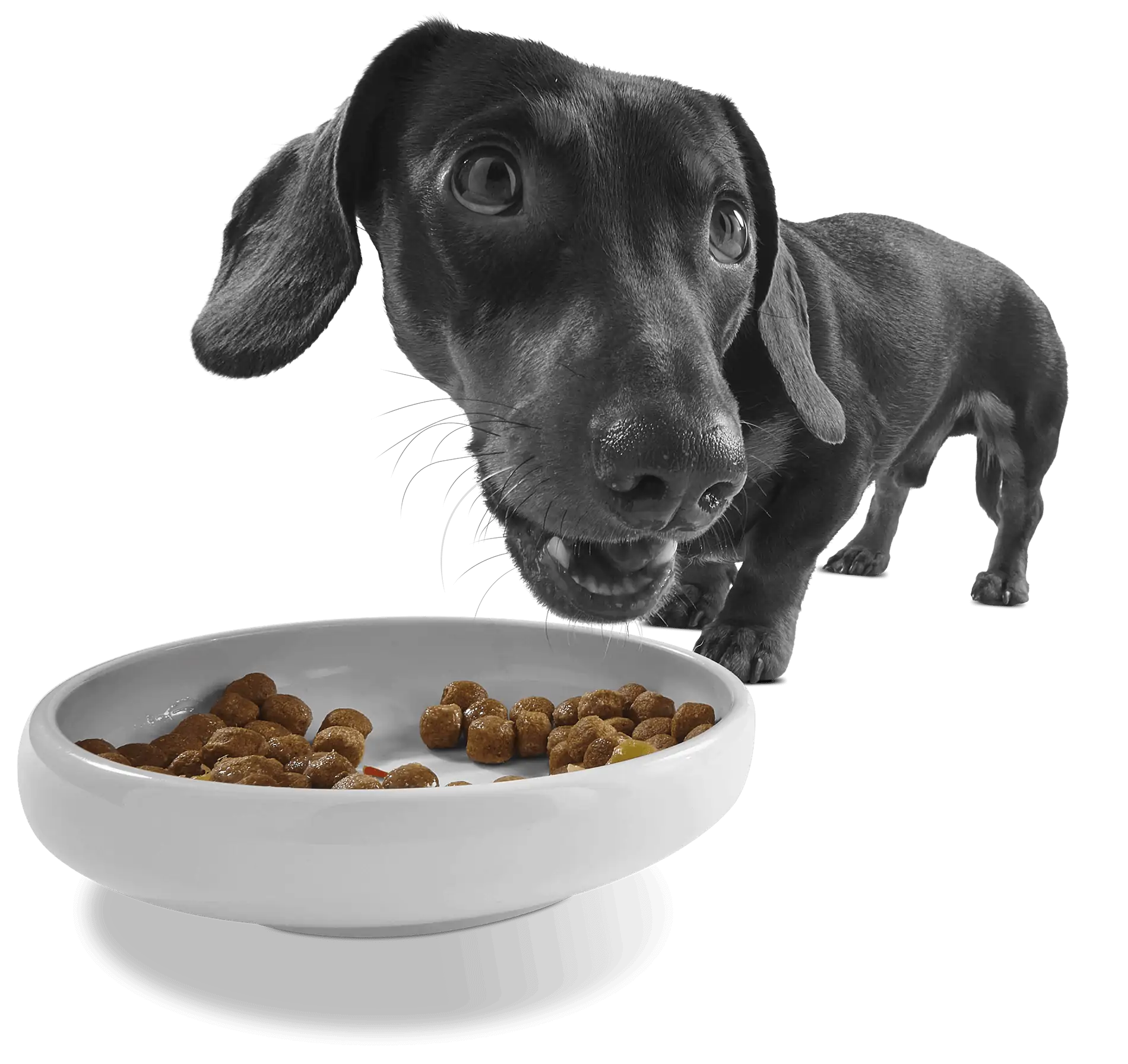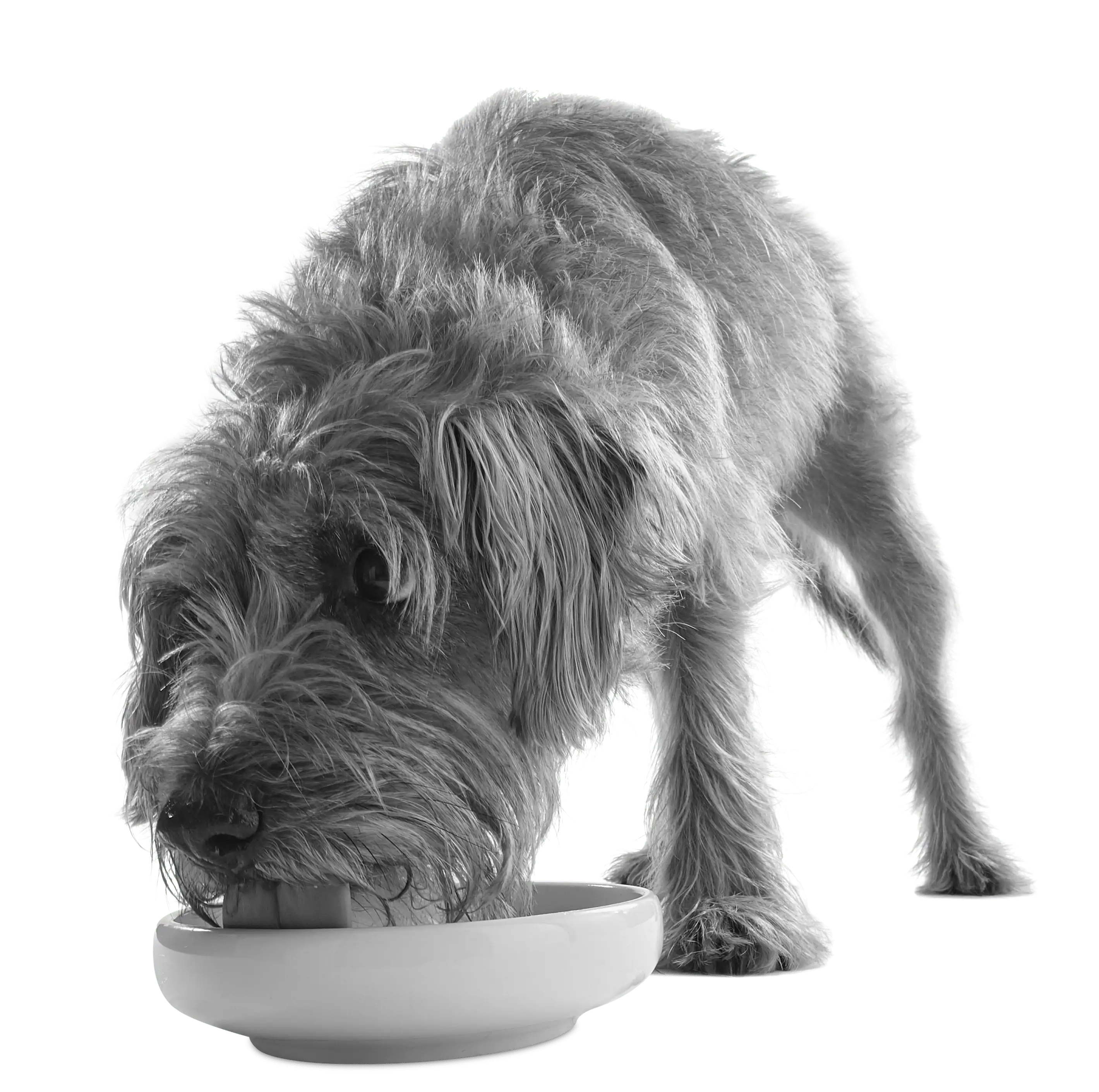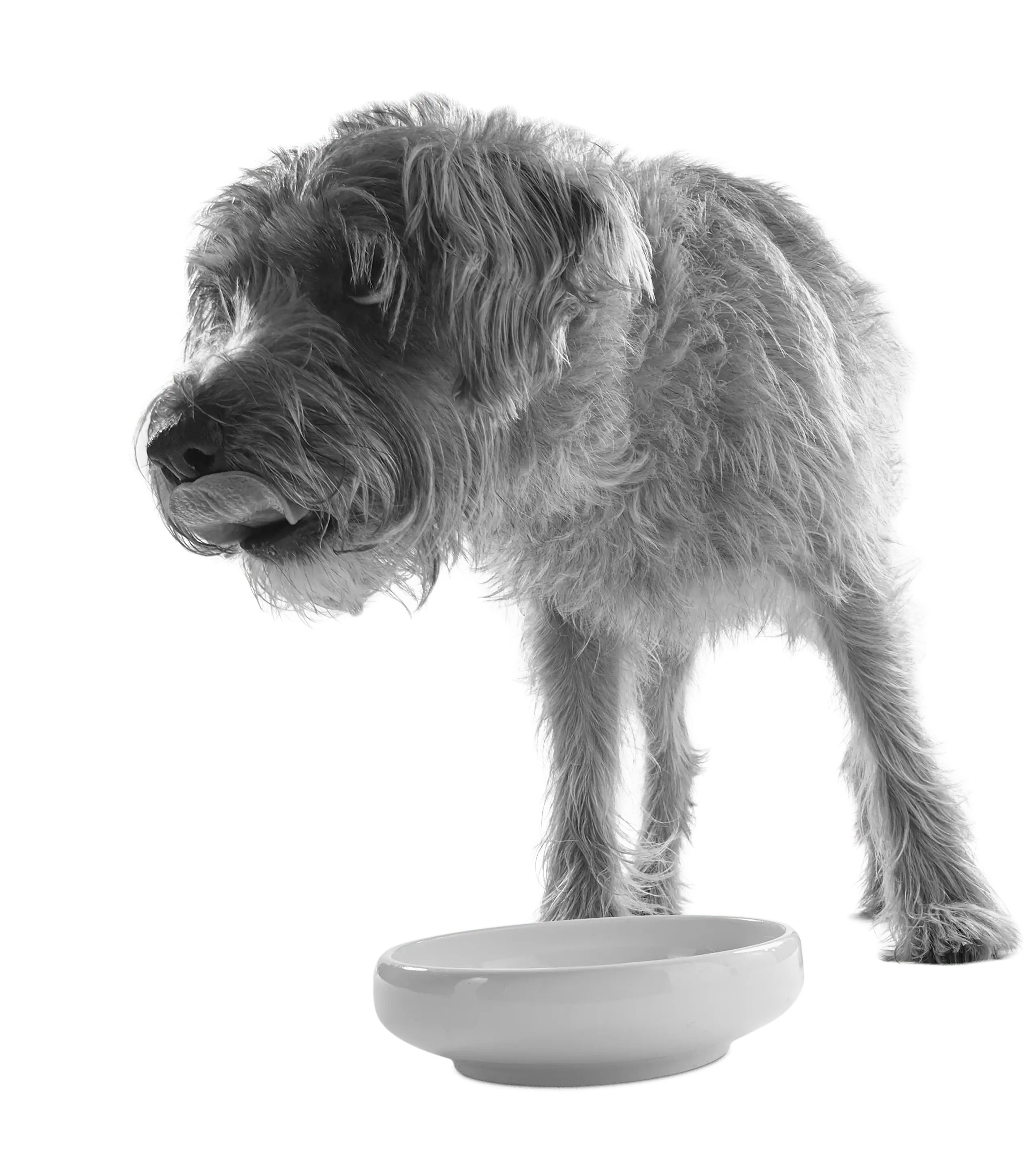There’s always someone in your household who wolfs down their food. Chances are that someone is your dog.
It’s not random that humans created this canine-themed saying. The habit of eating quickly is rooted in a dog’s ancestry. By nature, most breeds are competitive as they evolved from wolves that had to eat as much as possible for survival before any other predator could steal their food.
Similarly, rescue animals who once lived on the streets, or had owners who fed them erratically, might gobble up every meal because they could never guarantee when the next one would come.
With love and patience, they will learn to trust that you always put food on the table (or in the dog bowl).
Your well-kept pet might be king of the castle rather than a wild hunter, but if you are a multi-dog home, your dog might eat quickly to stop your other four-legged friends from snatching their meal.
They could also be driven by puppyhood anxiety when they competed for food with the rest of their litter.
But if you still worry that your dog eats too fast, here is our top advice to encourage them to slow down:
Is it normal for my dog to be eating food so quickly?
Your puppy might devour food like an Olympic sport because they love it.
Dogs commonly eat faster than humans, but the habit can cause vomiting and digestive problems.
Insatiable hunger could indicate an untreated illness like worms, or even diabetes and Cushing’s disease, which can impact canine metabolism and increase appetite.
More seriously, swallowing food without chewing is a choking hazard.
One of the most dangerous emergencies is bloat, which fills the tummy with gas and causes it to twist, cutting off the blood supply.
Older or overweight dogs, or large breeds with big chests, are most at risk. Symptoms include pain, gagging, and a swollen stomach. If you see these signs in your pet, visit a vet immediately.
Your dog inhaling food might seem quirky, but you should consult a professional if you are worried, especially if the behaviour is new.
Is eating quickly a sign of food aggression in dogs?
A puppy eating too quickly can be a sign of food aggression. Many of us are guilty of squirrelling away our favourite chocolate bar to avoid sharing. But it can be dangerous when a dog inappropriately guards their food.
Your dog might stiffen, growl, and bite or eat faster when someone approaches. And pets may fight each other over food.
Observe your four-legged friend’s body language closely, and give them a safe space to eat undisturbed.
6 ways to make your dog eat more slowly
- Untreated illness: Always check if your pet has worms or other parasites to rule this out. Remember, it is vital to seek veterinary advice if you think they might have an underlying health condition, especially if eating too quickly is a new behaviour. Treating this will hopefully return their appetite to normal and slow down their eating.
- Safe dining spot: Providing your puppy with a quiet place to eat, perhaps alone in a closed room, can make the whole dining experience a lot calmer – especially if they’re suffering from anxiety. Avoid bowl sharing as well by feeding pets separately.
- Spread out meals: Try serving your pet two or three small meals throughout the day instead of giving them all their food in one sitting. This could help lower their risk of bloat. You can buy specially designed slow-feeding bowls, or create your own by placing a small dish upside down inside a larger one and pouring your dog’s food around it.
- Make mealtime fun: Serve your puppy’s food inside a food-dispensing dog toy that releases a few pieces of kibble at a time. To make a version at home, place a muffin tin upside down and pour their food between the moulds, forcing them to fish it out. Food puzzle toys also make your pet work for their grub, and therefore take smaller bites. Alternatively, try putting their favourite ball or chew toy in the bowl – as long as it’s not too small to be swallowed – so that your pet must work around it, again taking smaller bites.
- Poor nutrition: Your furry friend might often seem ravenous due to a lack of body-boosting nutrients. Check their diet with your vet, and try switching to a more complete and well-balanced dog food brand like Applaws Complete Dry Food to keep them full-up and healthy. Note that a parasite can also prevent dogs from absorbing nutrients. Seek veterinary advice as a treatment can solve this.
- Hand-feed: Everyone loves good manners at the table. Hand-feeding is a brilliant way to teach them to your gorgeous pup while strengthening your bond. Turn training into meal time by using your pet’s regular food as a reward. Not only does it encourage them to eat little and often, but it can also help to calm anxious animals by building trust and boosting their confidence.
Take the time to understand
Understanding why your dog eats like they’re trying to set a Guinness World Record can help to slow things down. Seek vet advice to check they are consuming the nutrients they need, and rule out any health concerns, especially as bloat can be fatal.
If there are no underlying illnesses, your four-legged friend might have in-built anxiety around food harking back to their ancestry, or early experiences of inconsistent feeds.
Offer smaller, but more frequent meals, and incorporate stimulating toys that motivate them to work for their food. You can ease their worries by hand-feeding or giving them a quiet dining spot.
For further dietary advice, you may also find the following articles insightful:
